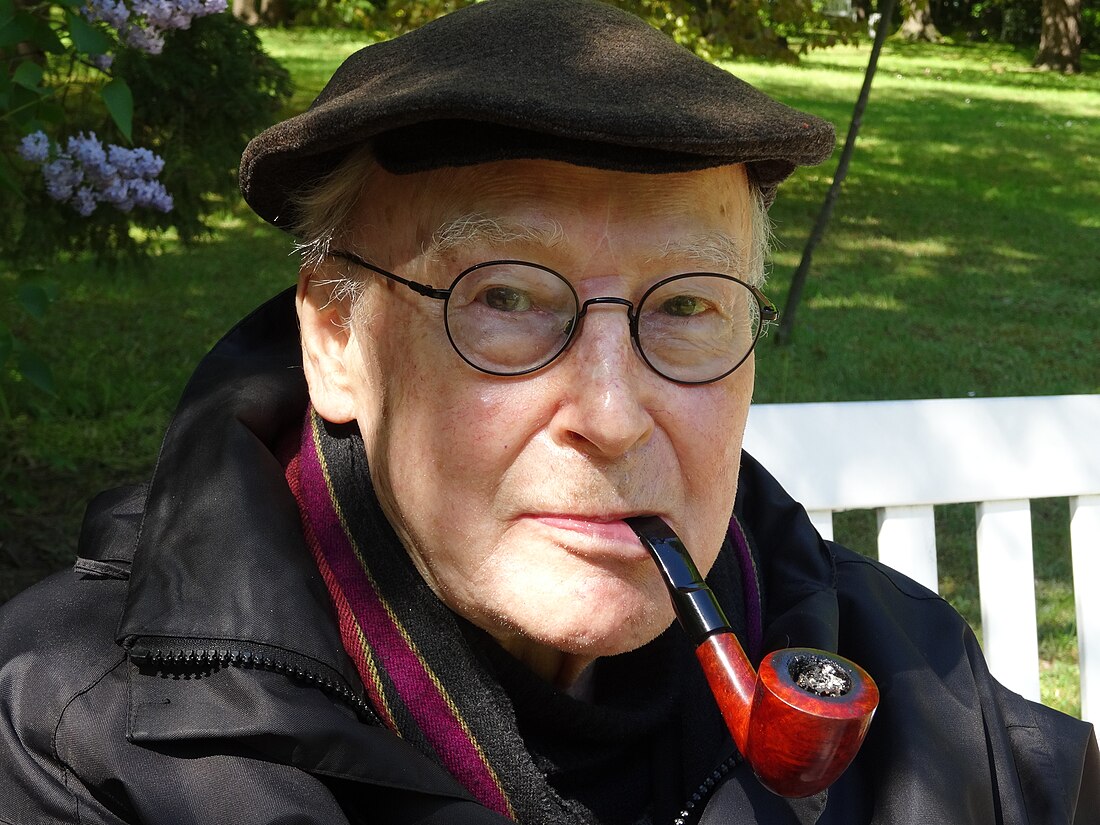Albrecht Wellmer
German philosopher From Wikipedia, the free encyclopedia
Albrecht Wellmer (German: [ˈvɛlmɐ]; 9 July 1933 – 13 September 2018)[1] was a German philosopher at the Freie Universität Berlin.
Albrecht Wellmer | |
|---|---|
 Albrecht Wellmer, 2014 | |
| Born | 9 July 1933 |
| Died | 13 September 2018 (aged 85) |
| Nationality | German |
| Occupation | Philosopher |
| Doctoral advisor | Theodor Adorno |
| Doctoral students | Christoph Menke, Andrea Kern, Ruth Sonderegger, Moishe Postone, Sebastian Rödl |
Biography
He studied mathematics and physics at Berlin and Kiel, then philosophy and sociology at Heidelberg and Frankfurt. He was an assistant to Jürgen Habermas at the University of Frankfurt from 1966 to 1970. He has held Professorships at the Universität Konstanz (1974–1990), the New School for Social Research and at the Freie Universität Berlin (1990 until his retirement in 2001). He has held guest Professorships at Haverford, Stony Brook, Collège International de Philosophie, the New School of Social Research and the University of Amsterdam.
Awards
In 2006 he received the Theodor W. Adorno Award, a prestigious award for achievement in philosophy, theatre, music, and film. In 2011 he received the Anna-Krüger-Preis of the Berlin Institute for Advanced Study.
Works
His works include books and articles about Aesthetics, Music, Critical Theory, Ethics, Modernity, and Postmodernity as well as thinkers such as Adorno, Habermas, Rorty, and Wittgenstein.
Personal life
From 1965 to 1981 Albrecht Wellmer was married to Ilse von Neander. He is the father of composer and artist Anne Wellmer. Albrecht Wellmer's grave is at Alter St. Matthäus Kirchhof in Berlin.
References
External links
Wikiwand - on
Seamless Wikipedia browsing. On steroids.
